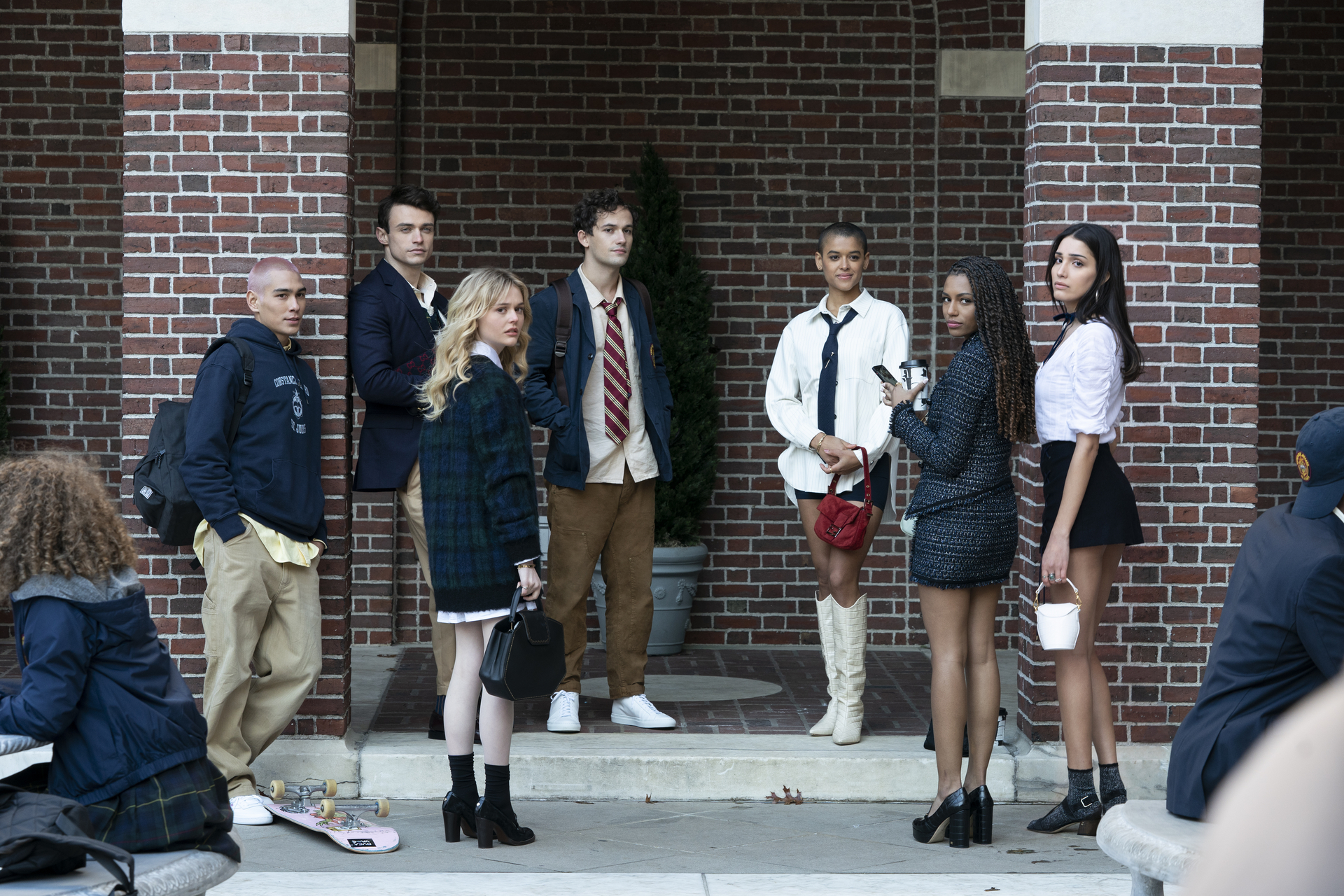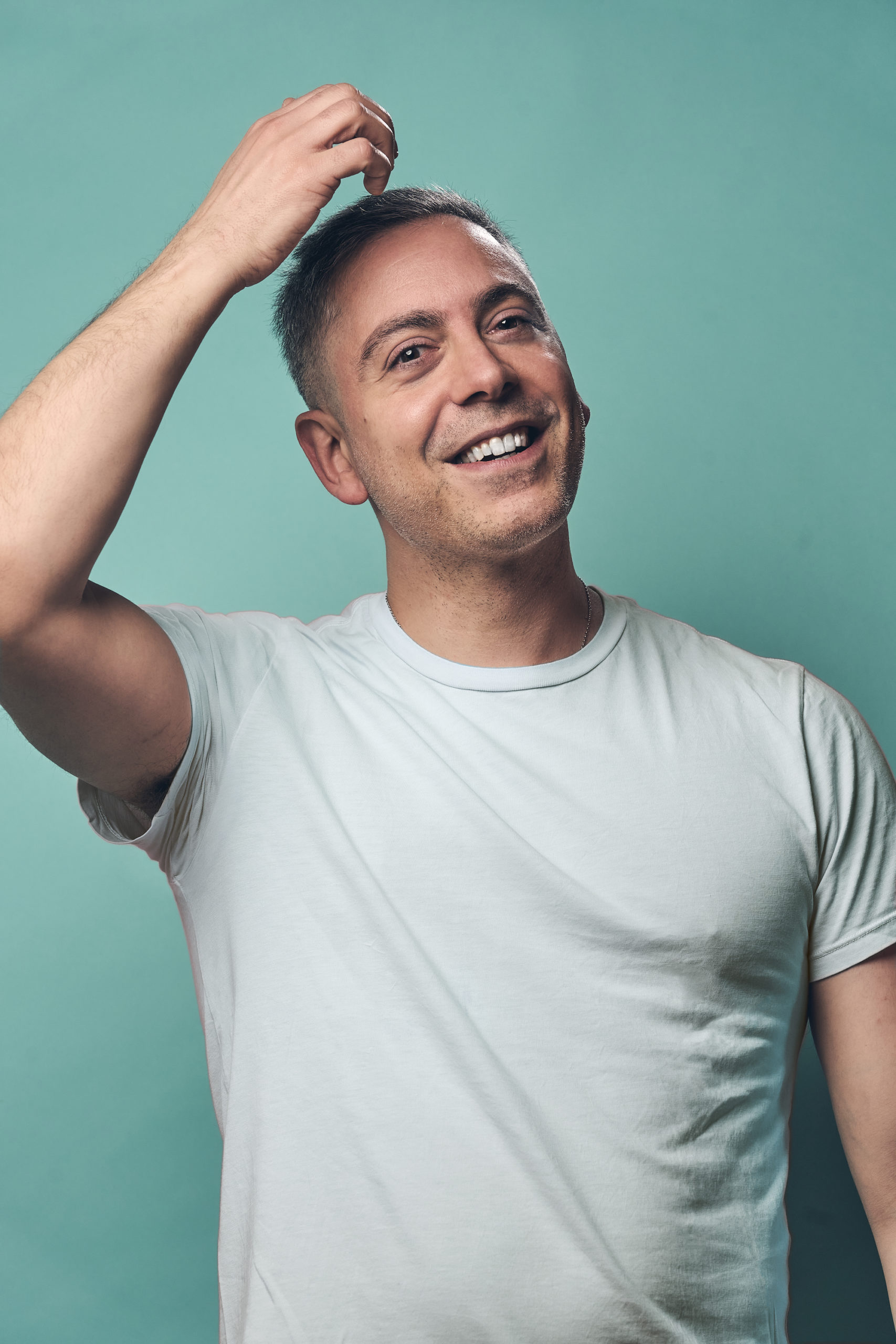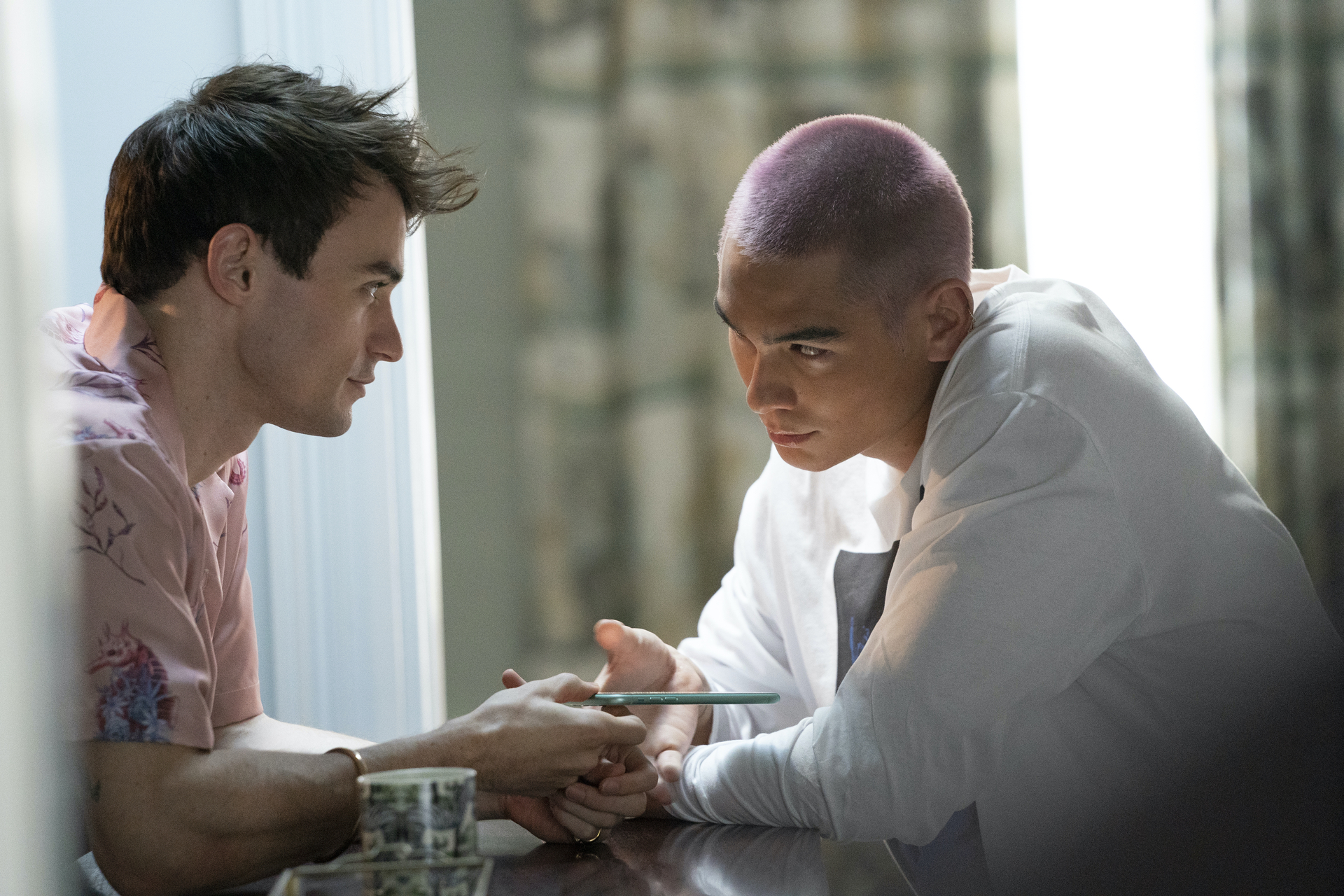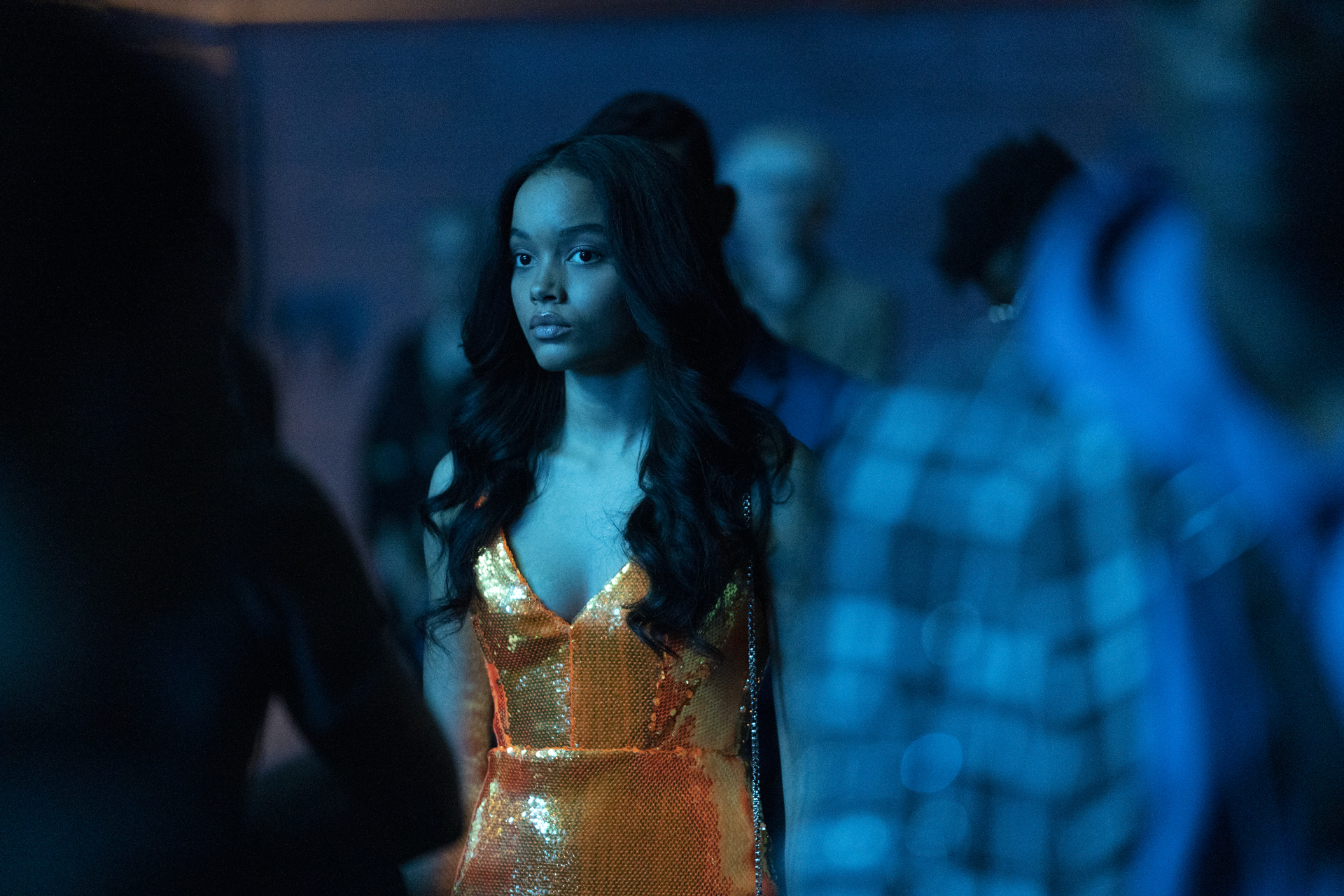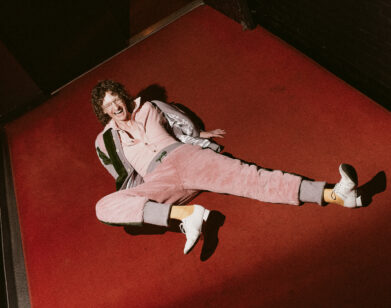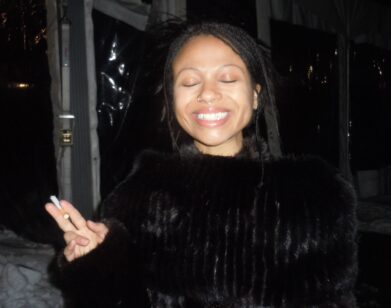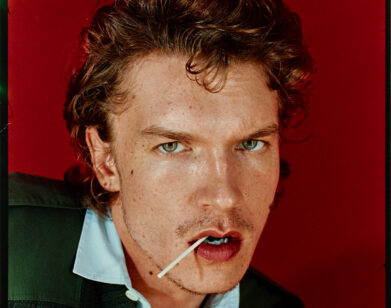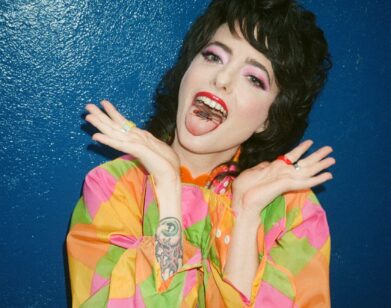xoxo
Gossip Girl Creator Josh Safran Can’t Contain His Excitement
Even in today’s reboot-crazy landscape, some television shows are just too perfect to replicate. Gossip Girl, which ran for five seasons during the golden age of teen soaps from 2007 to 2011, would seem to be one such show. Set in the penthouses and courtyards of New York’s Upper East Side, Gossip Girl painted an irresistible portrait of metropolitan wealth—from its meticulously-curated luxury trappings to its dark underbelly—all dripping in drama and portrayed by a cast of captivating young actors.
Evidently, the chance to relive—and rewrite—some of the show’s epoch-defining moments was too good to pass up. Ten years later, Gossip Girl is back, and many of the original series’ shortcomings have been rectified. The main cast, for starters, is far more diverse than the original six leads: the Serena-Blair rivalry now revolves around two women of color (Whitney Peak and Jordan Alexander), and Thomas Doherty’s 2021 answer to Chuck Bass is queer and understands the importance of consent. Though privilege remains the backbone of the show, it is engaged in ways that have prompted the Twitterverse to dub the reboot “Woke Gossip Girl.”
Interview spoke with Josh Safran, creator of the reboot and a writer and executive producer on the original show, to discuss the reboot’s new focus and the challenges of avoiding a Gossip Girl 2.0 while honoring the themes that spoke to fans the first time around.
———
FRED SAHAI: Why a reboot? And why now?
JOSH SAFRAN: I can’t really take any credit for the reboot, because Josh [Schwartz] and Stephanie [Savage] came to me with their idea. At first, I was like, “It’s too recent. We don’t really need to do it again. What would the reason be?” But when I left that meeting and I couldn’t stop thinking about it. And I just really felt like there were more stories to tell. I had this idea and I just couldn’t let it go. I realized that the first time around, we never got to see Dan be Gossip Girl. We never got to experience what it must’ve been like for Dan to sit at a table with Serena right next to him as he posted something about her. Once I started going down that rabbit hole, I was like, “Well, we have to show what being Gossip Girl does to you.”
SAHAI: Were there other storylines you were exploring as ways to revive Gossip Girl?
SAFRAN: Nope. This idea of the teachers came before anything else. And the fun was for me was in how they fuck it up. So there was no other version.
SAHAI: Do you think that the teachers in the original series sent tips about their students to Gossip Girl? Apart from Miss Carr, that is.
SAFRAN: I think they probably would have. And there’s funny stuff coming up in these episodes too, where there are more teachers that get involved and more tips that come from them. There’s that joke in episode three, where Luna tells Zoya that her doorman sells tips, and she doesn’t believe it. At the end of the episode, you see the doorman take a photo. So yes, I do think that people that were around all the time, service workers and people working at the school were all sending in tips.
SAHAI: Instagram is a big deal today, and consequently a big deal in the show. What do you think the original characters’ Instagrams accounts would have been like?
SAFRAN: Jenny would definitely be on there with a store attached to her Instagram, desperately trying to sell her fashion line, and tagging people so they would see it, but nobody really would be. Serena wouldn’t have an Instagram. I think there’d be tons of posts with a hashtag of her name. I think Blair would be on there and very much be angry that she wasn’t verified, and doing everything she could to get verified. Nate would be on there and barely use it. Chuck’s account would just be photos of him in various suits around town. All professional portraits, probably. I think Instagram is really a tool for the Dans of the world, which is why it makes sense that he was Gossip Girl. He would be very active on Instagram and so would Vanessa. It would probably be all curated clips of movies that they’d watched.
SAHAI: While we’re on the topic of Instagram, did you name the character of Julien Calloway—who’s presented as the influencer archetype—as a nod to Caroline Calloway?
SAFRAN: No, not even for one second. And I loved that Caroline Calloway tweeted about believing that it was based on her, but no. I hate to say it, but I didn’t think about her at all when I came up with the name. But I mean, fine, great, if she wants to think that.
SAHAI: There’s a noticeable change in tone when you compare the reboot to the original. Was that intentional?
SAFRAN: I think it’s more of a change in time. The original was very soapy, and there was a little bit of a heightened fairytale universe in the original. This one is more grounded and down to earth while also still being “twisty.” I also think this version is more HBO. When the first one premiered, it was the era of Desperate Housewives and The O.C, which was very “rich people have problems too.” It was a fun thing to watch. And you wanted to watch them have as many problems as possible. I think today, because of Instagram, we see rich people on a daily basis. You can walk into the life of so many people in a way that you couldn’t back then, so I wasn’t interested in “rich people have problems too” anymore.
SAHAI: How did you make the decision to address COVID in the show?
SAFRAN: Initially we were supposed to shoot two weeks before the lockdown. No one knew how long it was going to last so at a certain point, there were conversations about re-breaking all of the scripts and setting the show during COVID. Because COVID could have stayed with us for years, and it may still. But then the kids couldn’t go anywhere and that didn’t make sense. Eventually I decided to set it after COVID. Even if we were still dealing with the pandemic when it came out, audiences want escapism, they want to remember what the world was like. So there were these references because I think it’s important to make Gossip Girl feel like it takes place in the universe that you and I are living in. But it’s so crazy, I could not have predicted this timing of New York City coming back to life at the same time that these characters are coming back to life.
SAHAI: I feel like the original cast embodied certain archetypes that have carried through in the reboot. Did you consciously set out to write the characters that way?
SAFRAN: I actually didn’t. The characters from the original were based on characters in the book that Cecily von Ziegesar created. For the reboot, I had to invent these characters from scratch and I thought, “I’ll do this differently.” I asked myself: “What titans of industries did we not look at?” We didn’t look at media moguls, we didn’t look at theater, we looked at music [with Rufus Humphrey], but we didn’t look at it from [Julien’s father’s] angle. I came up with these worlds first, and then as I wrote the characters I turned to Stephanie at one point and I was like, “I think Audrey has a little Blair in her. And I think Max has a little Chuck in him, and I really tried to stay away from that.” And she said, “Well, of course, you couldn’t, because Cecily did her research, and those are the types of people that are in these schools.” There’s always a student who is a hedonist. There will always be the person who is very classic and buttoned up, like Audrey and Blair. Those are archetypes that exist in this world. But you move away from them. For example, Max has very clear boundaries and consent is important to him. Max is not Chuck.
SAHAI: Other than trying to glamorize wealth less, what are other things that you felt had to change to bring this series into 2021?
SAFRAN: I was there for five of the six years [of the original], so the show is in my blood and bones. So, I didn’t think about comparisons. I was just like, “What is this show in 2021?” It’s HBO Max, so we don’t have restrictions on nudity or sexuality, or language. Our budget is bigger now and we have more time. We have more money so we can get into spaces we couldn’t get into the first time around. The clothes have changed. Eric Daman does an amazing job of making a mood board for every character. He and I will brainstorm and he’ll bring me something that includes what I saw, but it’ll also include all the stuff that I would’ve never seen because Eric is a genius. So there isn’t a lot of looking back. I think the only few times that happened in the writer’s room was when writers would pitch stuff and I would say, “Actually, we can’t do that because that was on episode 13 of season three.” I have this encyclopedic brain of the original.
SAHAI: The opposite question is, was there anything you sought to bring back from the first show?
SAFRAN: There has to be a scene outside school. Every episode has to begin with the Gossip Girl voice-over. There were rules that are still in the DNA and stay no matter what. But I think the biggest thing that makes Gossip Girl, Gossip Girl is that every single episode of the first show had an event. It could be as small as a tea party or as huge as a wedding, and every character converged. The rule was that every few episodes there would be two different events because you couldn’t always get everybody into the same event every time. But there would be a crossover. For example, if there was an event at the Waldorf’s and an event at the Van der Woodsen’s at the same time, somebody would end up going to the other. So to me, that’s Gossip Girl. And the structure really is so wonderful. It really helps the episodes, because even though there are no act breaks on HBO Max, we still break the episodes with act breaks. The end of act one, you hear about something that’s going to happen. At the end of act two, all of the trains are headed towards each other. And in act three, the trains collide. And act four, it’s the aftermath. So we break the episodes that way. And it helps make it feel like Gossip Girl because everything comes together and explodes.
SAHAI: The episode of Julien’s birthday reminded me of how Gossip Girl was a way to know what was cool, in terms of clothes, food and music. The musical guest you have in episode four made me remember how many great artists you had on the original, like Lady Gaga or St. Vincent.
SAFRAN: That’s the fun of Gossip Girl, right? There are great cameos. We had to keep that going.
SAHAI: What else are you excited about?
SAFRAN: I just really love this show. I love this cast, they are truly the greatest actors. I’m in awe every day. Having Laura Benanti, Luke Kirby, and John Benjamin Hickey playing the parents is so incredible. Having the show coming out at a time where people are getting back to life has been really inspiring. The thing I’m most looking forward to is the audience getting over their preconceived notions of what they wanted the show to be and seeing the show for what it is. It’s still Gossip Girl, it’s just 2021 Gossip Girl.

